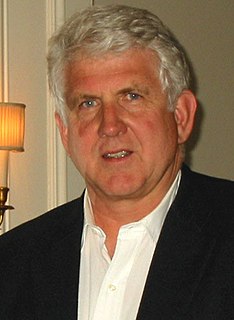A Quote by Chris Anderson
And it's interesting, when you look at the predictions made during the peak of the boom in the 1990s, about e-commerce, or internet traffic, or broadband adoption, or internet advertising, they were all right - they were just wrong in time.
Related Quotes
When I was your age, we didn't have the Internet in our pants. We didn't even have the Internet not in our pants. That's how bad it was. I know I sound like my grandfather right now. We didn't have teeth! There were no questions marks, we just had words! What was I talking about? The Internet...Not only can you not plan the impact you're going to have, you often won't recognize it when you're having it.
The notion of the Internet as a force of political and social revolution is not a new one. As far back as the early 1990s, in the early days of the World Wide Web, there were technologists and writers arguing forcefully that the Internet was destined to become the most important tool for cultural change in human history.
We made it. Despite the fear and predictions of doom. We made it. Even though there were days when we were tired and there were days when we forgot who we were. We made it. And we must thank the stars for this. And the birds for their beautiful songs. And the strangers who were careful to smile. We made it.
When you think about normal advertising, it's just like, hey, here's a car and, you know, we don't know if you're looking for a car or not. So Google promised that mental state, and then were able to prove that delivering the message at the exact right moment would make someone click on something. So they pioneered the idea that advertising could be profitable on the internet, that a specific, very micromental state could be targeted. And they established the primacy of the click, which has haunted us ever since.



































